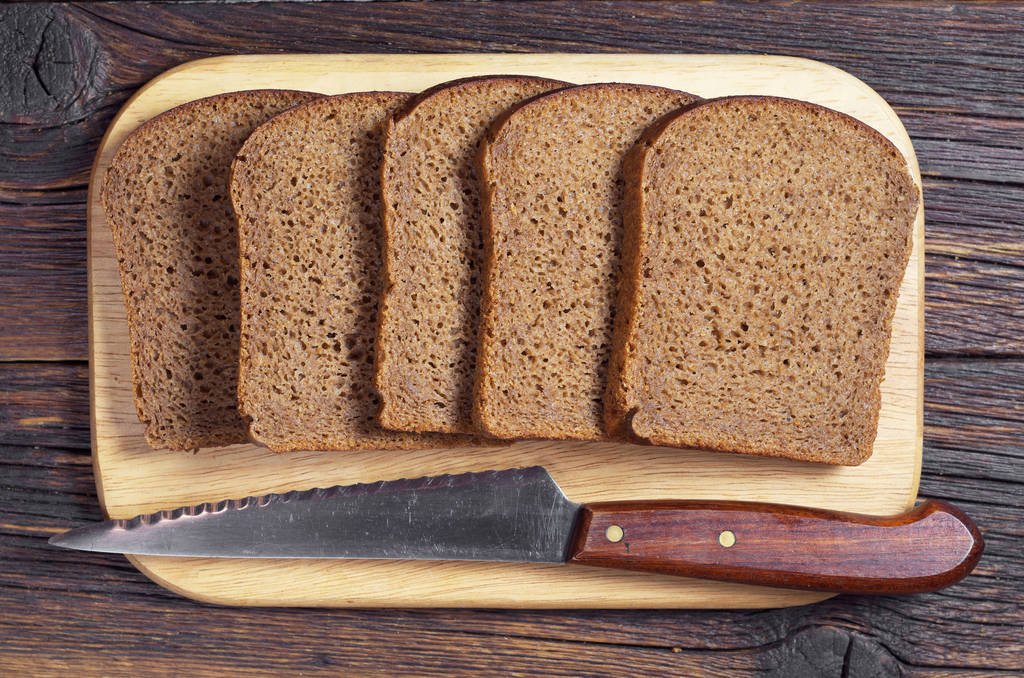The diverse world of bread, rye bread stands out for its unique flavor, dense texture, and rich history. Originating in the colder parts of Europe, it has been a staple in many cultures for centuries. But beyond its distinctive taste and cultural significance, rye bread has emerged as a favorite among health enthusiasts. This article delves into the health benefits of rye bread, exploring its nutritiona profile, and comparing it with other types of bread.
Nutritional Composition of Rye Bread
Rye bread is made from rye grain, which is closely related to wheat but offers a different nutritional profile. Here are the key components that make rye bread a healthy choice:
Fiber Content: Rye bread is exceptionally high in fiber, especially when it’s made from whole-grain rye. Dietary fiber is crucial for digestive health, aiding in bowel regularity and preventing constipation.
Rich in Nutrients: It is a good source of essential nutrients such as magnesium, phosphorus, B vitamins (particularly niacin and vitamin B6), and iron. These nutrients play vital roles in energy metabolism, nerve function, and the formation of red blood cells.
Low Glycemic Index: Rye bread generally has a lower glycemic index (GI) compared to many other types of bread. This means it causes a slower rise in blood sugar levels, which can be particularly beneficial for individuals managing diabetes or looking to maintain steady energy levels.
Health Benefits of Rye Bread
Improved Digestive Health
The high fiber content in rye bread not only helps in regular bowel movements but also aids in maintaining a healthy gut microbiome. This can lead to improved overall digestive health and may help prevent gastrointestinal disorders.
Nutritional Profile of Rye Bread
Rye, a grain closely related to barley and wheat, is the primary ingredient in rye bread. It stands out for its impressive nutritional composition, which includes:
High Dietary Fiber: Rye is notably rich in dietary fiber, particularly when used in its whole-grain form. This fiber promotes digestive health, aiding in regular bowel movements and preventing constipation.
Essential Vitamins and Minerals: Rye bread is a good source of several vitamins and minerals, including B vitamins (like niacin and vitamin B6), magnesium, phosphorus, and iron. These are vital for various bodily functions such as energy production, nerve function, and maintaining healthy blood cells.
Low Glycemic Index: Rye has a lower glycemic index compared to many other grains, making rye bread a favorable option for maintaining stable blood sugar levels.
Promotes Digestive Health
The high fiber content in rye bread not only helps in maintaining a healthy digestive tract but also assists in managing various digestive disorders. It can reduce the risk of constipation and maintain a healthy gut microbiome.
Aids in Weight Management
Rye bread can contribute to weight management strategies. Its high fiber content promotes satiety, helping to reduce overall calorie intake by keeping you feeling full for longer periods.
Supports Heart Health
The soluble fiber found in rye bread is effective in lowering bad LDL cholesterol levels, thereby reducing the risk of heart disease. Additionally, the presence of antioxidants in rye can help in maintaining cardiovascular health.
Benefits for Blood Sugar Control
For individuals with diabetes or those at risk, rye bread can be a beneficial dietary choice due to its low glycemic index. It helps in moderating blood sugar levels and provides a more sustained energy release.
Nutrient-Rich Choice
With its rich content of vitamins and minerals, rye bread supports various body functions, including immune health, bone health, and energy metabolism.
Choosing the Right Rye Bread
It’s important to note that not all rye bread is created equal. The health benefits are most prominent in bread made from whole-grain rye. Consumers should look for bread that lists whole rye flour as the first ingredient and be wary of breads that are made from refined rye or are a mix of rye and wheat flours.
Weight Management
Rye bread can be more satisfying than other types of bread, leading to a greater sense of fullness and reduced appetite. This can be beneficial for those trying to manage their weight or reduce calorie intake.
Cardiovascular Health
The fiber in rye bread also plays a role in heart health. It helps in reducing LDL cholesterol levels (the “bad” cholesterol) and may lower the risk of heart disease. The presence of antioxidant compounds in rye can further contribute to cardiovascular benefits.
Rye Bread: A Nutritional Overview
Rye bread, made from rye grain, is more than just a flavorful alternative to traditional wheat bread. Its composition offers several attributes beneficial for weight management:
High in Dietary Fiber: Rye is rich in both soluble and insoluble fiber. This high fiber content is key in weight management, as it helps in promoting a feeling of fullness or satiety, reducing the likelihood of overeating.
Low Glycemic Index: Foods with a low glycemic index (GI) are digested and absorbed more slowly, leading to a gradual rise in blood sugar levels. Rye bread, particularly whole-grain varieties, typically has a lower GI compared to white bread, aiding in better blood sugar control and sustained energy levels.
Promotes Satiety and Reduces Appetite
The fiber in rye bread absorbs water and expands in the stomach, which increases the feeling of fullness and reduces appetite. This can help in lowering overall calorie intake, a key factor in weight management.
Longer Digestive Process
The complex carbohydrates in rye take longer to break down compared to simple carbs. This longer digestive process means that rye bread can provide a more prolonged sense of fullness, reducing the need for frequent snacking.
Stabilizes Blood Sugar Levels
Due to its low GI, rye bread helps in stabilizing blood sugar levels, preventing the spikes and crashes that can lead to hunger pangs and overeating. This is particularly beneficial for individuals with insulin sensitivity or diabetes.
Nutrient-Rich Choice
In addition to fiber, rye bread is a good source of essential nutrients like magnesium, iron, and B vitamins. These nutrients support overall health, which is crucial when following a weight management regimen.
Incorporating Rye Bread into Your Diet
To harness the weight management benefits of rye bread, it’s important to consume it in a balanced way:
Choose Whole-Grain Varieties: Opt for rye bread made from whole-grain rye flour to get the maximum fiber and nutrient benefits.
Mindful Portion Sizes: While rye bread is beneficial, portion control is still key. One or two slices per meal can be sufficient.
Balanced Pairings: Combine rye bread with healthy proteins, fats, and vegetables to create a balanced, satisfying meal.
Glycemic Control
For people with diabetes or those trying to manage their blood sugar levels, rye bread can be a better choice due to its lower glycemic index. This helps in preventing spikes in blood sugar levels, offering better glycemic control.
Understanding Glycemic Control
Glycemic control refers to the typical levels of blood glucose in an individual over time. Ideal glycemic control means maintaining blood sugar levels within a target range, which is crucial for minimizing the risk of complications associated with too high or too low blood sugar levels.
Why is Glycemic Control Important?
Prevention of Diabetes Complications: For those with diabetes, maintaining glycemic control is essential to prevent long-term complications, such as neuropathy, retinopathy, kidney disease, and cardiovascular problems.
Reduction in Risk for Diabetes: In pre-diabetic individuals, good glycemic control can delay or prevent the onset of type 2 diabetes.
Enhanced Energy and Well-being: Stable blood sugar levels can lead to more consistent energy levels and overall better health.
Weight Management: Good glycemic control can assist in weight management, an essential component of overall health.
Factors Affecting Glycemic Control
Several factors can influence an individual’s blood sugar levels, including:
Diet: The types and amounts of food consumed have a direct impact on blood sugar levels.
Physical Activity: Regular exercise helps the body use glucose more efficiently.
Medication: For those with diabetes, medication is often necessary to maintain blood sugar levels within the target range.
Stress: Stress can cause blood sugar levels to fluctuate.
Illness: Being sick can affect how the body regulates blood sugar.
Strategies for Achieving and Maintaining Glycemic Control
Mindful Eating
Focusing on a balanced diet rich in fruits, vegetables, whole grains, and lean proteins, while limiting high-sugar and refined carbohydrate foods, is essential.
Monitoring Blood Sugar Levels
Regular monitoring can help track the effectiveness of diet, exercise, and medication in maintaining glycemic control.
Regular Physical Activity
Engaging in regular physical activity helps the body use insulin more efficiently and lowers blood glucose levels.
Medication Adherence
For those on diabetes medication or insulin, adhering to prescribed treatment is vital for maintaining glycemic control.
Stress Management
Effective stress management techniques, such as meditation, yoga, or deep breathing exercises, can help mitigate the effects of stress on blood sugar levels.
Education and Support
Understanding diabetes and glycemic control, and having a support system, can empower individuals to take control of their health.
Rye Bread vs. Other Breads
When compared to white bread, rye bread is undoubtedly healthier due to its higher fiber content, richer nutrient profile, and lower GI. However, it’s important to note that not all rye breads are created equal. The health benefits are most pronounced in whole-grain rye breads, as opposed to those made with refined rye flour or a mixture of rye and wheat flours.
Nutritional Comparison
Fiber Content: Rye bread is typically higher in fiber compared to white and even whole wheat bread. The high fiber content in rye bread aids in digestion and provides a feeling of fullness, which can be beneficial for weight management.
Mineral and Vitamin Content: Rye is a good source of essential nutrients such as magnesium, phosphorus, B vitamins, and iron. These are often more abundant in rye bread than in white bread and comparable to whole wheat in some aspects.
Glycemic Index: Rye bread generally has a lower glycemic index than white bread, meaning it causes a slower increase in blood sugar levels. This is particularly beneficial for individuals with diabetes or those trying to manage their blood sugar levels.
Health Benefits
Digestive Health
Thanks to its high fiber content, rye bread is excellent for digestive health. It can help prevent constipation and maintain a healthy gut microbiome.
Cardiovascular Health
The fiber in rye bread can also contribute to improved heart health by helping to lower cholesterol levels. Additionally, the whole grains in rye have been linked to a reduced risk of heart disease.
Blood Sugar Control
With its lower glycemic index, rye bread is a smarter choice for maintaining steady blood sugar levels, making it a suitable option for people with diabetes.
Culinary Uses
Flavor and Texture: Rye bread has a distinctive, earthy flavor and a denser texture compared to white and whole wheat bread, making it a favorite in sandwiches and toast.
Versatility: While white bread is known for its soft texture and mild flavor, making it a staple for various dishes, rye bread offers a robust flavor profile that pairs well with strong cheeses, cold cuts, and pickled foods.
Conclusion
In the debate of rye bread vs. other breads, it’s clear that rye bread stands out in terms of nutritional benefits and health aspects. With its high fiber content, array of nutrients, lower glycemic index, and distinctive flavor, rye bread is an excellent choice for those looking to improve their digestive health, manage their weight, or maintain healthy blood sugar levels. However, the best choice ultimately depends on individual dietary needs, health goals, and personal taste preferences. By understanding these differences, consumers can make informed decisions about what type of bread best suits their lifestyle and health objectives.


